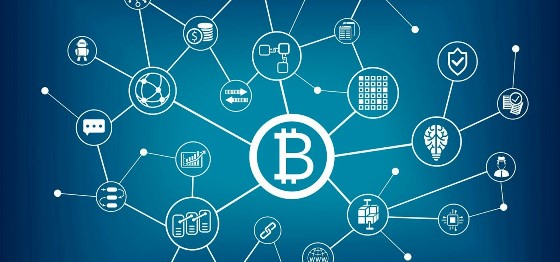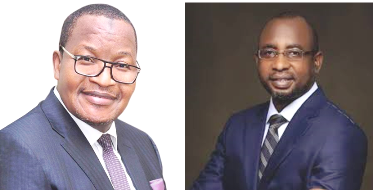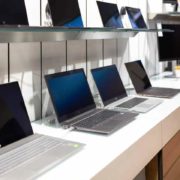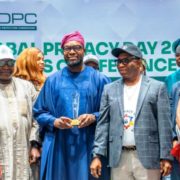In spite of current challenges, the Director General of National Information Technology Development Agency (NITDA), Kashifu Inuwa Abdullahi, has expressed conviction that Nigeria is repositioning itself for the global new economy, as Africa’s most populous nation, to lead the continent in Artificial Intelligence (AI) and Blockchain technology.
Also, Executive Vice Chairman of the Nigerian Communications Commission (NCC) Prof. Umar Garba Danbatta said adoption of AI solutions across sectors, in Nigeria and the rest of Africa, is expected to be tremendous in the next few years.
Both regulators were speaking at the virtual Digital Africa Conference and Exhibition 2021 with the theme: ‘Building a New Africa with AI & Blockchain.’
Abdullahi was optimistic that Nigeria will lead Africa in its economic diversification. His words: “Africa, particularly Nigeria, with a growing population and dwindling revenue from oil, have put significant pressure on the economy. There is a need to harness other areas to diversify our economy. Emerging technology is one of these areas, and will play an important role in economic diversification, if properly harnessed.”
He said digital technologies are changing the world at a faster pace than previously experienced and waves of technological innovation are remodeling businesses.
RELATED
Search Results for: AI, blockchain

Can Blockchain And Crypto Help Eradicate Financial Exclusion? The IMF, World Bank, And UN Say They Think So
Posted By: ITEdgeNews 0 Commentblockchain, crypto, Electroneum, financial exclusion, IMF, UN, World BankEdit
This article by Electroneum offers insight on how crypto and blockchain adoption for financial inclusion could salvage over 250 million people across the globe thatRead more

Global Spending On Blockchain Solutions To Soar By 188% And Hit $19b By 2024
Nigeria Working On Blockchain Adoption Strategies For Health, Other Sectors – NITDA’s Boss Abdullahi
Nigeria Sees Fast Adoption Of Blockchain Technologies, Says Pantami At GITEX 2020
The world is being reshaped by digital economies and Nigeria as is the rest of Africa must take the cue, the NITDA boss said.
“It is pertinent to note that despite the economic shocks due to the COVID-19 pandemic, most of the growth was observed in the economies with viable digital economies.
“Digital economy has been identified as an engine of growth; hence Nigeria can harness it as a driver of growth and innovation,” Abdullahi said.
He added that the WBG Digital Economy for Africa (DE4A) flagship initiative supports the digital transformation strategy for Africa, prepared by the African Union (AU), the DE4A Initiative also recognizes that digital economy can help to accelerate the achievement of the UN Sustainable Development Goals (SDGs), and the World Bank Group’s twin goals.
He recounted that recently, a call to action was made with the unveiling of the “Economic Sustainability Plan 2020” which seeks to put technology at the forefront of driving development in Nigeria. “This conference is a meeting point for professionals, practitioners, and policymakers to brainstorm on the best ways of harnessing these technologies to the advantage of the citizenry.”
He added: “For Nigeria, a country in dire need to diversify its economy, digital economic activities are key for diversification because they transcend all aspect of human endeavours and the economic sector.’’
According to him, the development with utilization of emerging technologies is one of the strategic pillars for the 2021 -2024 Roadmap and Action Plan. Driving this pillar requires the combined efforts of the National Centre for Artificial Intelligence and Robotics (NCAIR) and Office for Nigeria Digital Innovation (ONDI) – both subsidiaries of NITDA.
“We are already collaborating and will always be willing to partner with stakeholders and researchers to bring AI, Blockchain, and other emerging technologies to support our economic diversification and sustainability plan for the country.”
Prof. Danbatta, in his keynote address asked African leaders to leverage the unprecedented quantities of data being generated as an asset to better understand the behavioral pattern of the larger population as a way of making strategic decisions as they concern human health, commerce, communications, and migration among others.
“Adoption of AI solutions is expected to increase tremendously in the next few years and competition among major AI companies is expected to be intense,” said Prof. Danbatta.
According to him, Blockchain is the foundation for crypto currency such as bitcoin; one of the newest technologies that has received extensive global attention in recent times. Blockchain serves as an immutable measure which allows transactions take place in addition to a live manner. Blockchain-based applications are springing up, covering numerous fields including financial services, refutation systems, Internet of Things (IoT), health and so on.
Danbatta, while making reference to ‘Emergent Research’, a research consulting firm focused on small businesses, projected that the global Blockchain market of 180.7 million dollars in 2019 is anticipated to reach 1.12 billion dollars by the year 2027. It is a compound growth rate of 25.6%. One major implication of this revelation is that a robust and reliable broadband infrastructure and advanced technology, such as the 5th generation network (5G), are required to unleash the huge economic potentials of AI and Blockchain in every country.






























